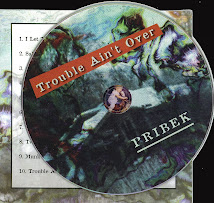 Dear Colleagues and fellow Innovation Mechanics:
Dear Colleagues and fellow Innovation Mechanics:I stand with you in not wanting to give in to secular competition, or be scandalized at the expense of losing my professional standing. In here with my peers, I often run across articles that fully support my prideful stance.
I have strong inclination that Customer Experience is the fastest growing business consideration in the new microcosm of Blogging, and cyber-raceous-space communicating. Following is just one of many found articles on innovation. I submit: "knock-off" has become the mother of innovation.
It may not be just the product your and my customers are looking for. "Our business ambience has much to do with our patent businesses," says Innovations. The future looks bright if we reverse decree "self-serve" to: trusting each other as patron and server, in our B2B enterprises. I think it is a good idea.
Do we not always keep an eye out for key-words and bench-mark decisions in the positive sense, to nurture free-world entrepreneurs in missions of business applications? I personally know that there is no simple shortcut, only a strong sense of "which and why" best practices apply in daily tasks to win customer loyalty, when there is so much ill will in the communities.
In sharing this entire article with you, as it appears in Innovations, supplement to Baseline, eWeek, and CIO Insight, our innovator spirits will gain confidence to stand up and be counted. PD
Innovation Through Customer Experience
In today’s ultra-competitive business environment, creating a unique customer experience could well be what makes or breaks your company.We live in a border less, 24 x 7 world in which competitive advantage is fleeting and seemingly unsustainable. Ideas are a commodity, and innovations are routinely knocked off by competitors in a matter of a few weeks or months.
In his new book, The Coming China Wars, University of California Business School professor Peter Navarro tells of one city in China that has become so adept at counterfeiting U.S.auto parts that the practice now makes up the majority of its economy. This is a two-pronged problem for U.S.companies because not only are they unable to sustain an advantage against a copycat competitor, but their brand is beholden to the quality of parts they did not’t even produce.
In a world of simple knock offs, we need another route to sustainable advantage. That route is customer experience.
When you think of the companies that have broken out of the pack to redefine their markets in recent years – companies like Starbucks, Nike, Google, Wal-Mart, Southwest Airlines, and Apple – they have succeeded by creating an experience that customers find compelling enough to seek out for themselves. That experience is a barrier to entry for competitors. It’s distinctive, and nearly impossible to copy.
Customer experience does not’t necessarily mean customer service, although that’s a big part of it. Customer experience is about an interaction that has special meaning for the customer. BMW owners can tell you that there’s something about the feel of driving their car that no other vehicle can replicate. A Harley motorcycle enthusiast would never own another brand. Nike has used its advertising to create an identity that its customers instinctively want to adopt. People will wait in line to buy overpriced coffee at Starbucks because there’s something soothing and invigorating about the atmosphere.
One of my favorite examples of a company that provides outstanding customer experience in a commodity business is Wawa, a Pennsylvania-based convenience store operator. Its commitment to friendly and positive customer service has earned it a fanatical following. There are Wawa fan clubs on MySpace.com, Live Journal.com and Face book.com, where visitors exchange their best customer service stories. I don’t know about you, but I’ve never distinguished one convenience store from another. This 540-store grocery chain has managed to create a cult of customer enthusiasts that any business would envy.
Customer experience comes in many forms, and they don’t necessarily involve technology. In fact, successful companies often do nothing more than find out what really matters to their customers, and then focus on doing that very, very well. A great example of this is Southwest airlines. The airline industry is obsessed with complexity; its fare structure alone is incomprehensible to its customers, and the logic of the hub-and-spoke system is often baffling. Southwest went back to basics and focused on doing a few things well that customers said really mattered to them: take off on time, arrive on time, get them their baggage quickly, and don’t charge a lot of money. Believe it or not, those simple things are differentiators in the airline business.
Think about what you can do to create a unique customer experience. Ask customers what they want, and then give them that plus more. Find ways to delight them and they will be yours for a very long time.
http://www.innovations.ziffdavis.com/weblog/2007/02/innovation_thro.html
Use of this site is governed by our Copyright © 1996-2007 Ziff Davis Publishing Holdings Inc. All Rights Reserved. Innovations are trademarks of Ziff Davis Publishing Holdings, Inc. Reproduction in whole or in part in any form or medium without express written permission of Ziff Davis Media Inc. is prohibited.
Use of this site is governed by our Copyright © 1996-2007 Ziff Davis Publishing Holdings Inc. All Rights Reserved. Innovations are trademarks of Ziff Davis Publishing Holdings, Inc. Reproduction in whole or in part in any form or medium without express written permission of Ziff Davis Media Inc. is prohibited.





No comments:
Post a Comment